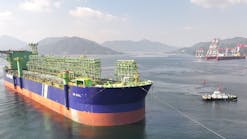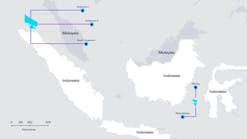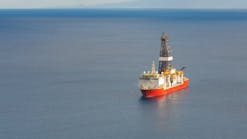Offshore staff
(North Carolina)-Natural gas and oil drilling offshore North Carolina could become a reality within the next 10-12 years, provided reserve estimates are verified and legislative opposition in the state is overturned. While the odds for finding economically viable developments are only on the order of 2%, the payoff could be on the order of 5 to 6 tcf of natural gas, according to Mike Lopazanski, an analyst with North Carolina's Division of Coastal Management.
Companies such as Chevron have been analyzing sites about 40 mi off the Outer Banks fishing village of Avon, which is where the current estimate of 2% viable reserves came from. While these companies are touting this potential as a way to decrease our reliance on foreign oil, there are a number of non-oil industries utilizing the waters off the coast of North Carolina that are expressing concern and opposition to further exploration activities.
State Senate President Pro-tem Marc Basnight said, "The coastal area supports the tourism and fishing industries." These industries bring in $2.6 billion and $100 million a year, respectively, to the state's economy. Basnight argues that environmental concerns, such as the possibility of an oil spill as a consequence of hurricane damage, could severely impact both these industries.
Renee Orr of the Minerals Management Service addressed some of these concerns by pointing to successes in the GoM. Orr commented that offshore platforms there passed the test during this season's Hurricanes Katrina and Rita in that "there were no significant oil spills associated with either of those." She continued by stating that MMS conducts environmental impact studies during every step of the proposals process for offshore drilling.
In terms of concerns that platforms would litter the horizon just offshore from popular beaches where tourists spend their vacation time and money, Orr stated that these platforms would be far enough offshore that they would be over the horizon. "They're not going to see it sunbathing or surfing," she said.
Disputes and debates will continue on this matter for the foreseeable future. While there is currently a moratorium on offshore drilling through 2012, recent legislature has been moving through the U.S. House that would give state legislatures and governors final say on offshore drilling for their respective states. If passed, the current moratorium may end sooner than scheduled, and oil and gas companies stand ready to explore.
11/09/2005




